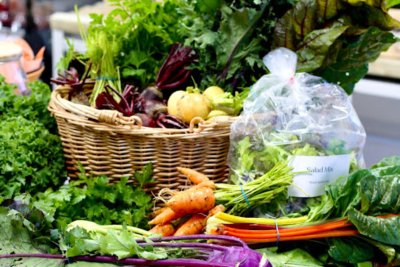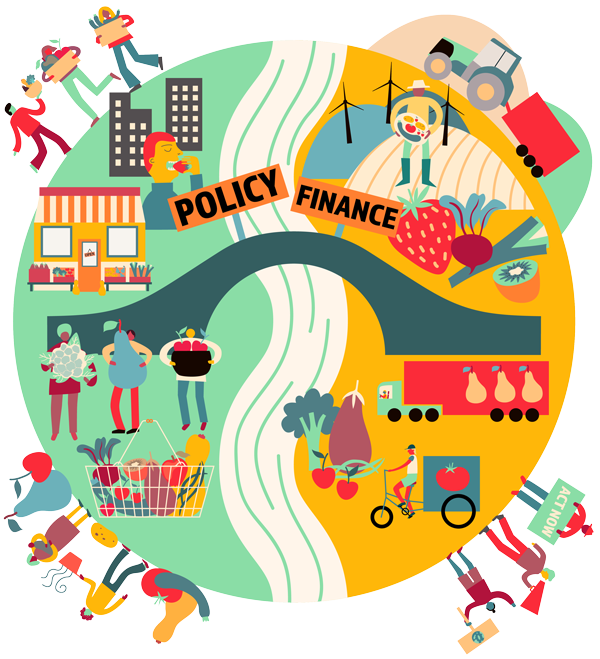News • Commercial Determinants
Peterborough Council introduces a healthier food advertising policy
Peterborough Council becomes the second in the East of England to switch the spotlight away from unhealthy food as leaders sign off on a healthier food advertising policy

Peterborough Council signed off on a robust policy to restrict unhealthy food and drinks adverts in their local area. The measures have been introduced to improve public health across the city.
Peterborough Council is the seventeenth Council to bring in a Healthier Food Advertising Policy, after the Mayor of London, with support from Sustain, first brought in the policy across the Transport for London network in 2019. Peterborough is the second Council in the East of England to do so after Luton successfully signed off on a policy in 2023.
Fran Bernhardt, Sustain's Commercial Determinants Coordinator said:
We’re delighted to have worked with Peterborough Council to prioritise children’s health by switching the spotlight away from unhealthy foods and drinks. I am especially pleased that Peterborough’s Youth Council have tirelessly championed this effort on behalf of all local young people and worked closely with the Council.
There are now 17 English Councils plus the Transport for London network which have introduced these robust policies designed by Sustain. This growing movement sends a message to the national Government to deliver on their pledges to restrict advertising on TV and online, and further focus on outdoor and radio to set the stage for healthier food across our communities.
This policy is a bold step in the right direction: prioritising not just health but equality and sustainability too. Evidence shows that putting the spotlight on unhealthy food increases the risk of food related ill health like diabetes, heart disease and tooth decay. Companies target low-income areas, resulting in people living there being more likely to experience poor health. Additionally, many of the restricted products are unsustainable containing climate damaging ingredients, such as sugar, cocoa and palm oil, as well as requiring lots of energy to process them.
We hope the terrific news from Peterborough will inspire even more Councils to take this important step for their residents’ health.
Councillor Shabina Qayyum, Peterborough City Council's Cabinet Member for Adults and Health said:
I’d like to praise the members of Peterborough Youth Council for raising this important issue. Their good thinking and action has led to a new approach to advertising which should see health improvements for people in our city now and in the future.
There is evidence to suggest that the advertisement of HFSS food and drink increases the risk of children living with food-related ill health such as diabetes, tooth decay and cancers. Children living in more deprived areas are also more exposed to unhealthy food advertising and are therefore at higher risk.
This policy is one way we can switch the spotlight from unhealthy foods to healthier foods to reduce the number of cases of obesity, diabetes and heart disease.
Aryan Nahata, Chair of Peterborough Youth Council said:
As young people in the city who are constantly bombarded by junk food advertising when travelling, we felt we had to do something about it.
Despite our initial challenges where we had to clarify our motives and work on a more achievable policy, we persevered. We did not give up, and were rewarded with the HFSS policy. We hope our success helps inspire the future generation to step forward for their beliefs and make a change.
Background
Evidence from the London School of Hygiene and Tropical Medicine’s evaluation of the Transport for London policy has shown that the restrictions led to a 20% reduction in sugary products, and a 1000 calorie decrease per week per household from unhealthy foods and drinks. Further modelling research from the University of Sheffield has estimated that across London, the restriction will lead to 95,000 fewer cases of obesity, 3000 fewer cases of diabetes and 2000 fewer cases of heart disease and save the NHS £218 million over the lifetime of the current population.
Transport for London also announced that its advertising revenues have been unaffected by the restrictions since implementation in 2019. In the first year of the policy, revenues went up by £2.3 million, and in the second year (2020-21), despite financial losses due to Covid lockdowns at the time, the restrictions enabled the advertising figures to be maintained.
While local authorities are taking action, national government has stalled on anti-obesity measures. In 2020, the Government announced plans to restrict unhealthy food adverts, including a total online and 9pm TV watershed as a key part of the government's obesity strategy. These were due to be implemented in January 2023. However, in December 2022 the national Government delayed these to October 2025 - a delay that pushes them back three years after the date they originally committed to. This comes after the Obesity Health Alliance’s research found that 8 out of 10 adults support the Government restricting unhealthy food advertising to children on TV (79%) and online (81%).
If your local authority is interested in introducing a healthier food advertising policy, check out Sustain's toolkit for local authorities.
Published Monday 22 July 2024
Commercial Determinants: We believe our health and the health of our planet must be prioritised ahead of companies’ profits. We’re taking a stand with policymakers by bringing in regulations that incentivise industry to higher standards.





